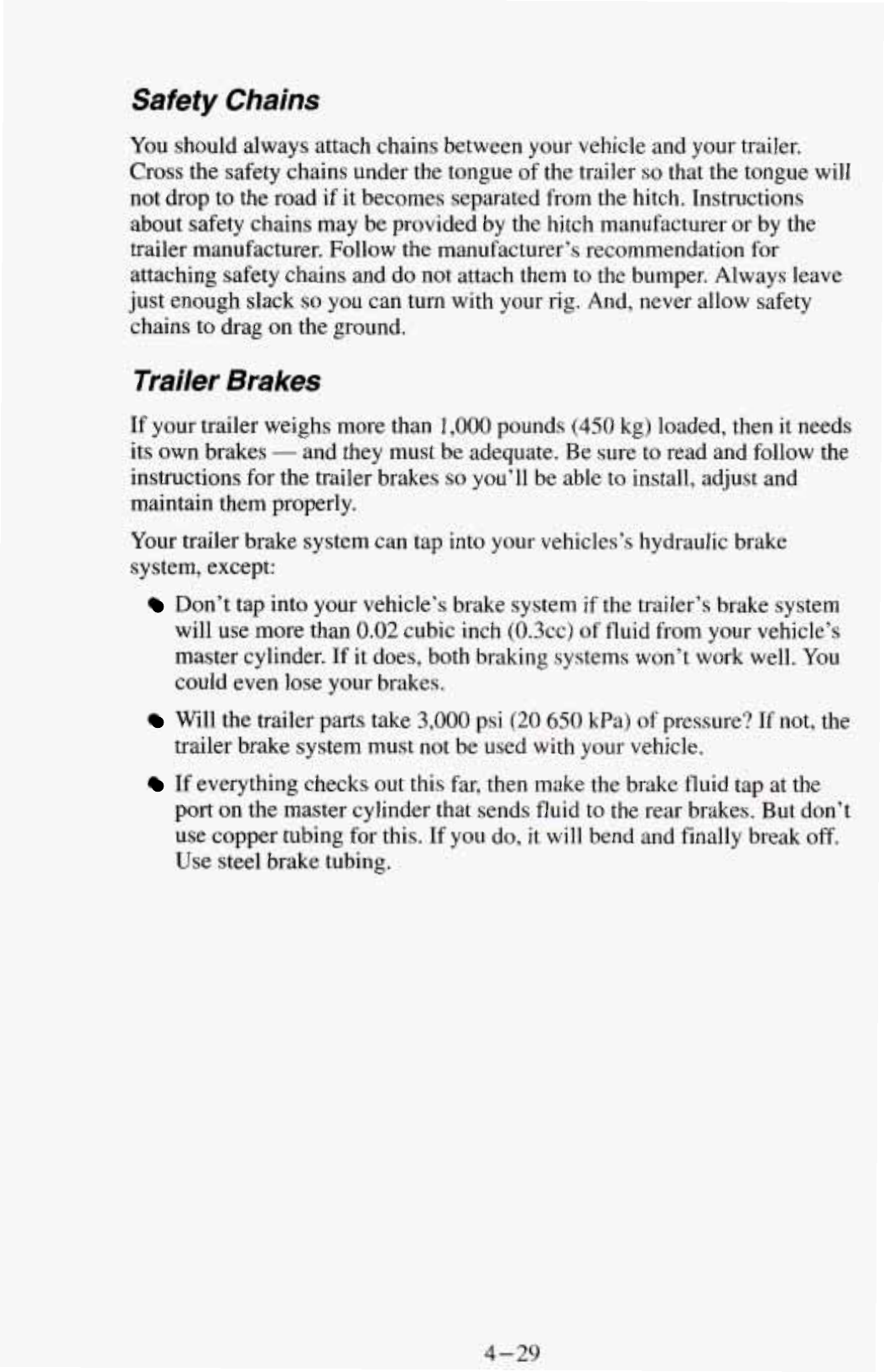
Safety
Chains
You should always attach chains between your vehicle and your trailer.
Cross the safety chains under the tongue of the trailer
so
that the tongue will
not drop to the road if it becomes separated from the hitch. Instructions
about safety chains may be provided by the hitch manufacturer or by the
trailer manufacturer. Follow the manufacturer’s recommendation for
attaching safety chains and do not attach them to the bumper. Always leave
just enough slack
so
you can turn with your rig. And, never allow safety
chains
to
drag on the ground.
Trailer Brakes
If your trailer weighs more than
1,000
pounds
(450
kg) loaded, then
it
needs
its own brakes
-
and they must be adequate. Be sure to read and follow the
instructions for the trailer brakes
so
you’ll
be able to install, adjust and
maintain them properly.
Your trailer brake system can tap into your vehicles’s hydraulic brake
system, except:
Don’t tap into your vehicle’s brake system
if
the trailer’s brake system
will use more than
0.02
cubic inch (0.3~~) of fluid from your vehicle’s
master cylinder. If it does, both braking systems won’t work well. You
could even lose your brakes.
Will the trailer parts take 3,000 psi
(20
650
kPa)
of pressure? If not, the
trailer brake system must
not
be used with your vehicle.
If everything checks out this far, then make the brake fluid tap at the
port on the master cylinder that sends fluid to the rear brakes. But don’t
use copper tubing for this.
If
you do, it will bend and finally break off.
Use steel brake tubing.
4-29


















